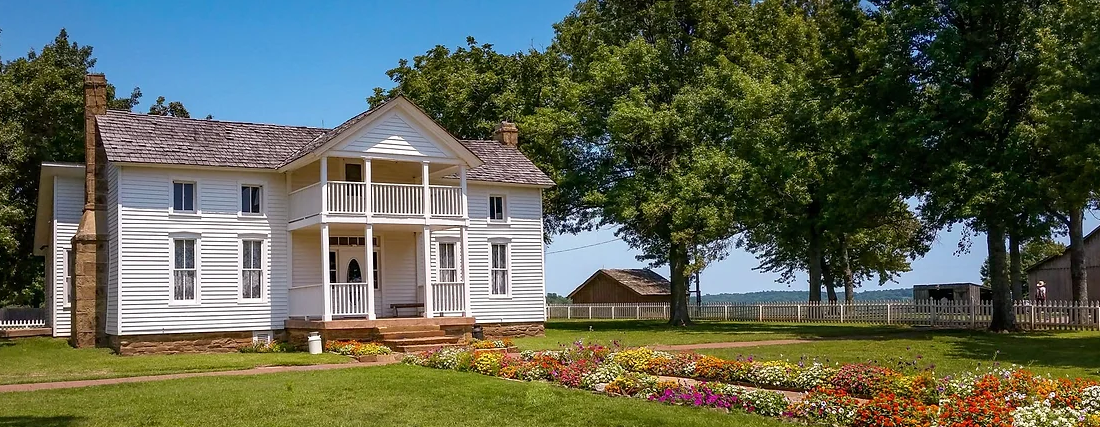
- Details
- By Chuck Hoskin Jr
Guest Opinion. Before Will Rogers became a world-famous performer, actor and social commentator, he was a young Cherokee growing up on a ranch near Oologah Lake. Now, Cherokee Nation has purchased the historic Will Rogers Birthplace Ranch from the state of Oklahoma. The purchase is a milestone for Cherokee Nation cultural tourism, honoring the legacy of a global celebrity with deep Cherokee roots.
With the transfer from the Oklahoma Historical Society complete, Cherokee Nation will invest in needed maintenance and develop the 162-acre property’s full potential as a destination for tourists from all over the world. We are excited to incorporate the Will Rogers Birthplace Ranch into our award-winning network of museums and historical sites across our reservation.
More than ever, we are committed to telling the Cherokee story to the world. For generations, others have attempted to tell our story, sometimes with good intentions, but often twisting it for their own purposes. By broadening the narrative of Will Rogers to include his early upbringing in a small, rural setting, his home, and his family, the Cherokee Nation will share the larger story of the Cherokee people and our enduring contributions to Oklahoma's heritage. Today, we have the resources to tell our own story.
The ranch holds great significance in Cherokee history, even beyond its connection to Will Rogers. First built in 1873, it has served as a crucial meeting place for commerce, government and community gatherings. It reminds us of the resilience of the Cherokee people, who not only survived but thrived after being forcibly removed to this region.
Cherokee Nation's acquisition of this cherished property ensures its preservation for future generations to explore and appreciate. Through collaboration with the state of Oklahoma and the Oklahoma Historical Society, we can offer a better understanding of this region for Cherokees and all Oklahomans.
Also, the economic benefits of cultural tourism cannot be understated. As the Cherokee Nation enhances and promotes the Will Rogers Birthplace Ranch, we will boost the prosperity of Rogers County and surrounding areas. Attracting more tourism will spread the benefits to local businesses, create jobs and grow the overall economy.

Significantly, our $1 million investment in the property is a boon to the region’s economy and will help further preserve the Will Rogers story. Every penny we spent on the Will Rogers Birthplace Ranch acquisition will be reinvested into the nearby Will Rogers Memorial Museum in Claremore.
The Will Rogers Birthplace Ranch is a testament both to a remarkable family and to the Cherokee people. The Rogers believed they could make something of this land and provide a future for generations of Cherokees. At the same time, they worried about the survival of the Cherokee Nation due to relentless federal policies aimed at eradicating us. We are proud to showcase this complicated chapter of American history as part of the unforgettable Cherokee experience.
Chuck Hoskin, Jr. is the principal chief the Cherokee Nation.
More Stories Like This
Colorado cannot heal until it confronts Sand Creek honestlyNative American Mothers Deserve to Live
Technology Rooted in Tradition is Strengthening Cherokee Nation
The Lumbee Tribe of North Carolina: #575
Tribes Do Not Need a Greenlight to Build Renewable Energy
Help us defend tribal sovereignty.
At Native News Online, our mission is rooted in telling the stories that strengthen sovereignty and uplift Indigenous voices — not just at year’s end, but every single day.
Because of your generosity last year, we were able to keep our reporters on the ground in tribal communities, at national gatherings and in the halls of Congress — covering the issues that matter most to Indian Country: sovereignty, culture, education, health and economic opportunity.
That support sustained us through a tough year in 2025. Now, as we look to the year ahead, we need your help right now to ensure warrior journalism remains strong — reporting that defends tribal sovereignty, amplifies Native truth, and holds power accountable.
 The stakes couldn't be higher. Your support keeps Native voices heard, Native stories told and Native sovereignty defended.
The stakes couldn't be higher. Your support keeps Native voices heard, Native stories told and Native sovereignty defended.
Stand with Warrior Journalism today.
Levi Rickert (Potawatomi), Editor & Publisher

